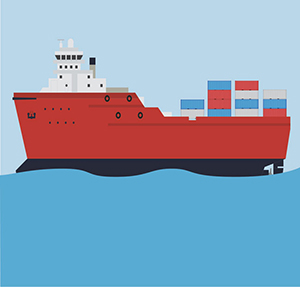Senior Reporter
A Year of Pandemic: Ports Battled COVID in 2020, and now Freight Crunch in 2021

[Ensure you have all the info you need in these unprecedented times. Subscribe now.]
The supply chain has come through severe trials since the coronavirus was declared a pandemic on March 11, 2020, by the World Health Organization. Trucking and related organizations describe the challenges and their progress.
♦♦♦
In early February 2020, leaders at the nation’s ports realized something might be wrong as the number of imported containers from China began to drop and reports of a strange new virus that was shuttering much of that country’s bustling industrial capacity began to circulate.
Within weeks, the number of containers arriving in the United States plunged as hundreds of sailings were canceled.
American Association of Port Authorities CEO Chris Connor told Transport Topics the biggest takeaway from the coronavirus pandemic is the essential nature of ports.

Read More
“Throughout the global pandemic, America’s ports — in fact, ports throughout the Western Hemisphere — never stopped operating,” Connor said.
“Port workers are clearly essential workers,” he added, “ensuring the delivery of vital goods to grocery stores, businesses and medical care facilities at major personal risk.”
Six months after the biggest drop in the history of many ports — which in some cases was a 25% decline in container volume in March, April and May — the ports came roaring back during the summer and fall. American consumers were buying billions of dollars worth of goods online.
“Countless millions of Americans were able to work from home with all the comforts of home at their disposal because the transportation system — with ports at the nexus — never paused,” Connor said.
At the nation’s two biggest ports, Los Angeles and Long Beach, Calif., dozens of ships are waiting their turn to be unloaded, and officials say it could be six months before the backlog is finally solved.
Want more news? Listen to today's daily briefing below or go here for more info:




